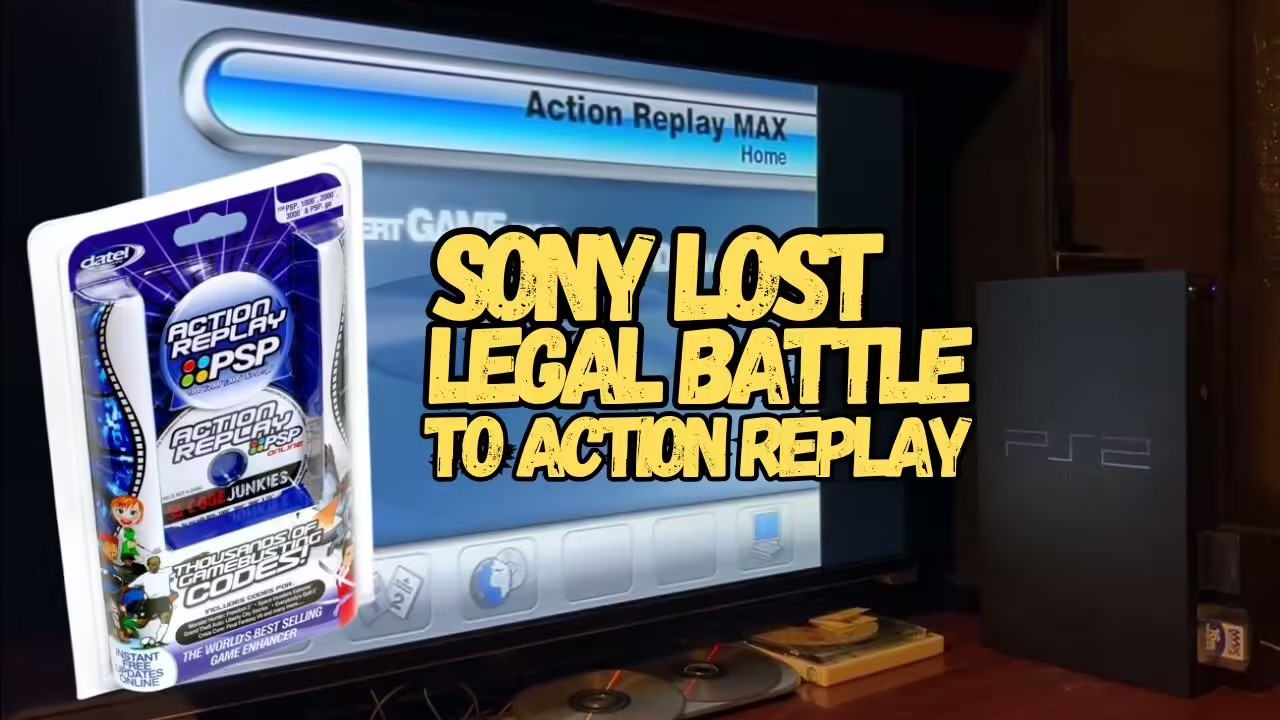The European Court of Justice (ECJ) has ruled against Sony in its long-standing dispute over third-party add-ons, notably the Action Replay software sold by UK-based company Datel. This ruling, which dismisses Sony’s copyright infringement claims, has significant implications for the gaming industry and Sony’s control over its hardware and software ecosystem. The court’s decision marks a turning point in the relationship between console manufacturers and third-party developers, particularly those creating modifications and cheat tools.
Background of the Case
Sony initially filed its lawsuit against Datel in 2012, claiming that Datel’s Action Replay, a cheat software, infringed its intellectual property by modifying game data. Sony’s argument centered on the idea that Action Replay alters game performance by manipulating data in a way that directly involved Sony’s proprietary source code. However, the court found that Datel’s software did not violate Sony’s copyright, as it did not modify or reproduce any part of Sony’s code.

The Action Replay allows players to input cheats and unlock hidden features within games, effectively altering the gaming experience. Sony believed that by using this tool, Datel was undermining its control over PlayStation games and infringing upon its intellectual property rights. However, stated by EuroNews, the European Court of Justice’s decision has firmly rejected these claims, providing a definitive legal standpoint on the matter.
The Court’s Ruling
The ECJ’s ruling was centered on a key distinction: while Datel’s Action Replay software interacts with the PlayStation system, it does not alter or duplicate Sony’s proprietary code. The court ruled that the software simply modifies variable data stored in the console’s RAM (random access memory) while the game is running. In essence, this data manipulation does not constitute a violation of Sony’s copyright, as it does not interfere with the core structure or programming of the game.
The court clarified that European copyright law protects only the source code and object code of a computer program. Variable data stored temporarily in the RAM does not fall under this protection, as it is not part of the intellectual property that copyright law is designed to safeguard.
The ruling stated, “The directive protects only the intellectual creation as it is reflected in the text of the computer program’s source code and object code.” In other words, the changes made by Datel’s software were purely temporary and did not alter the core functionality or code of the PlayStation games.
This decision sets a precedent for how third-party tools and modifications are treated under European copyright law. It allows for the use of external software like Action Replay without the fear of legal repercussions, provided that the core intellectual property of the game remains untouched.
Implications for Sony and the Gaming Industry
The court’s decision is a blow to Sony, which has long sought to control every aspect of its gaming ecosystem, including both hardware and software. By losing this legal battle, Sony faces a broader challenge: how to manage the increasing presence of third-party add-ons and modifications without infringing on consumer rights or resorting to legal actions that may not succeed.
For third-party developers, the ruling opens the door to a range of possibilities. Developers of cheat tools, mods, and other add-ons will likely see this as a green light to continue their work without fear of legal reprisals from console manufacturers. This could lead to an increase in the development of cheat codes, game modifications, and expansion packs, which, while controversial, have a loyal user base in the gaming community.
On the other hand, this ruling might have some negative repercussions for game developers and publishers. Cheating tools like Action Replay can disrupt online multiplayer experiences, giving some players an unfair advantage. This could affect the balance and integrity of competitive gaming, leading to potential frustration among players who prefer a fair and balanced playing field.
Sony’s Broader Challenges
The legal defeat in this case adds to Sony’s growing list of challenges in an industry that is rapidly evolving. As Shawn Layden, former PlayStation executive, recently pointed out, the gaming industry is at a crossroads. Layden emphasized that the traditional model of console gaming is under strain, largely due to the rising development costs of creating ever more powerful hardware and increasingly sophisticated games.
Layden noted that the industry has reached a point where the current model is unsustainable: Sony Loses Legal Battle to Block Third-Party Add-Ons for PlayStation Games… We’ve reached the precipice now, where the center can’t hold. We cannot continue to do things that we have done before.”
With the industry shifting towards cloud gaming, digital distribution, and subscription services, Sony will need to adapt to new ways of generating revenue and engaging with players. Losing control over third-party add-ons is just one part of this broader challenge. As gamers demand more freedom and flexibility in how they play, the traditional boundaries that console manufacturers like Sony have set may continue to erode.

